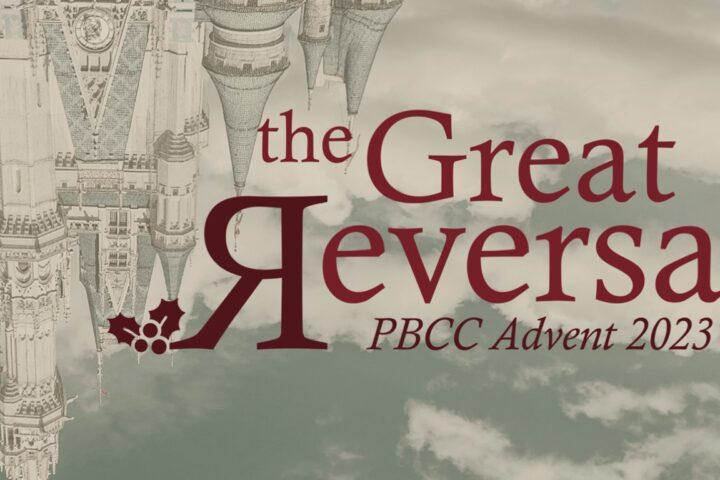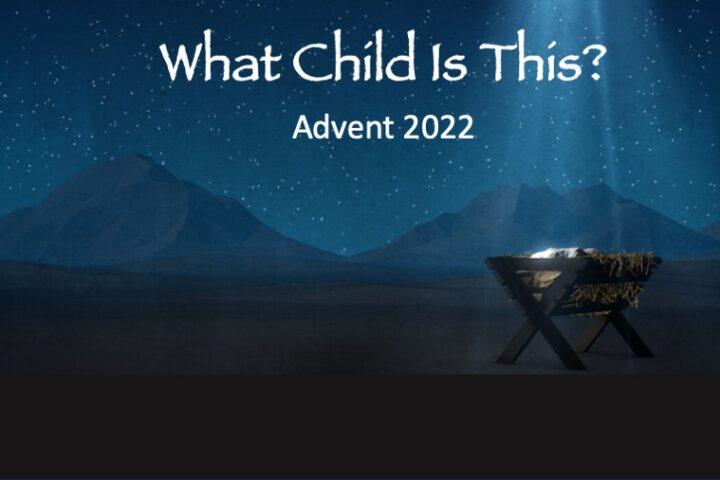Sermons by Brian Morgan
The Beloved’s Arrival and Reception
Mark 11:1-11
The Magnificat: The Refrain of the Revolution
Luke 1:26-55 Advent is the season of music. Music has incredible power to awaken dull minds, stir the emotions, and activate our wills with tremendous force. Consider the stirring sounds of a lone trumpet playing taps or the bagpiper’s penetrating notes of “Amazing Grace” at a funeral, or the heart-stopping beat of a massive drum roll of a marching band at a football game. Music can also be revolutionary, invading secular minds, breaking down hard hearts, and touching individuals with a dimension of what is holy. As the climax to Israel’s story, Luke gives us not one or two, but four songs of praise, announcing two miraculous births of sons to women who are childless. These boys will grow up to become the agents of God’s long-promised revolution, the victory over the powers of evil. “When the beating of your heart/ Echoes the beating of the drums/ There is a life about to start/ When tomorrow comes!” (“Do You Hear the People Sing?” – Les Miserables)
Open Our Eyes, Lord
Luke 24:13-35 (ESV)
What Are You Hoping For?
Isaiah 54:1-3. What role does hope play in your life? Do you ever allow yourself to dream? Do you believe God has a glorious future for you? If you are honest, I’m sure many of us would admit that it didn’t take long for the idealistic dreams of youth to be dashed upon the unforgiving bedrock of reality. Perhaps you’ve lost your ability to dream. “What are you hoping for?” now strikes the cynical cord of despair –“why” hope at all? Who dares hope against hope? In chapter 54, the prophet Isaiah resurrects Israel’s hope in the darkest days of her history, when the land was devastated and desecrated and her children taken into exile. Come and see how God’s people, once battered and beaten break forth into resounding jubilation.
Mighty God
Isa 9:6
In our first week of Advent, we remembered the gift of wisdom God has given us in Jesus — He is truly our “Wonderful Counselor”! This Sunday, we’ll look at another of the names Isaiah gave to the child born to us: “Mighty God”. In Jesus, God has shown Himself mighty over our enemies. But who are our enemies? And how did Jesus fight them for us? Come hear the good news of Jesus’ victory as we look once again at Isaiah 9:6.
Weary of Conflict, Longing for Peace
Psalm 120
Psalm 120 is the first in a collection of psalms (120-134) known as the “Songs of Ascent.” These songs were gathered together to be sung by pilgrims as they went up to Jerusalem three times a year for the great worship festivals of Passover, Pentecost and Tabernacles. These yearly pilgrimages shaped Israel’s identity in the saving acts of God’s grace. “Pilgrim” is an essential aspect of our identity as followers of Jesus. As God’s elect, we are not at home in this world. We are citizens of another world, making our way to a heavenly “city with foundations, whose architect and builder is God” (Heb 11:10). Psalm 120 gives voice to the pain and alienation we experience as foreigners and exiles in a strange land, juxtaposed with deep longings for God that break us out of our paralysis and launch us on our pilgrimage.
The Cost and Crowning Joy of Redemption
Ruth 4
In the final chapter we witness how Ruth’s courageous acts of hesed love propel Boaz to new levels of incalculable risk and joy of covenanted relationship that culminates in a “redemption” that outlasts history!
Who Are You My Daughter?
Ruth 3
As we enter the third chapter of Ruth, we encounter more bold and daring examples of hesed (“unfailing love to the helpless”) that, at first glance, appear dangerous and deceptive—a midnight encounter on the threshing floor that is loaded with sexual overtones and double meanings. Warning bells go off—“Parents Be Warned: Mature Subject Matter.” True, the scene is riddled with sexual tension, but I believe we need to teach our children how God’s people are perpetually confronted with difficult situations and hard choices and how they must decide whether they will be guided by self-interest or hesed. The choices made by Naomi, Ruth and Boaz are exemplary and compel us to constantly re-negotiate the complexities of moral decision making in a world where everyone is in some way threatened or compromised. Carolyn Custis James suggests that this is “one of the most powerful gospel encounters between two people in all of Scripture.” I believe it also gives a radical understanding to what it means “submit to one another out of reverence for Christ” (Eph 5:21).
Finding Favor in His Sight
Ruth 2
We are continuing our studies in the book of Ruth, where will discover new dimensions of hesed (“unfailing love for the helpless”). Even though Ruth is a barren widow, poor and an immigrant living in a foreign land, she takes bold and daring initiatives to provide food for her mother-in-law. Her boldness and industry do not go unnoticed by Boaz, who reciprocates her hesed in ways Ruth or Naomi could have never imagined. The text has much to say about the dynamic of God’s grace and human initiative and the importance of crossing social barriers and breaking societal rules to raise the dignity of the marginalized.
Will You Go Where I Go?
Ruth 1
For the last several weeks Bernard Bell has given us the broad sweep of the kingdom of God in heaven through the Daniel’s apocalyptic visions of ravenous wild beasts and destructive empires that rise and fall under God’s sovereign hand. For the next four weeks we will turn our attention to the book of Ruth, examining how God’s kingdom comes to earth in an age of moral deterioration, political disaster and civil war. Ellen Davis observes, “Like the Israelites in the time of the Judges, we are worn down and worn out by ‘great events’ on a national and international scale… and so, perhaps the teaching of this book of Ruth is especially apt now in a time of widespread disorder and personal loss, simple acts of mutual regard—the Hebrew word for that is hesed, the discipline of generosity that binds Israelites to one another and to God—acts of hesed can open up the future God intends.”





